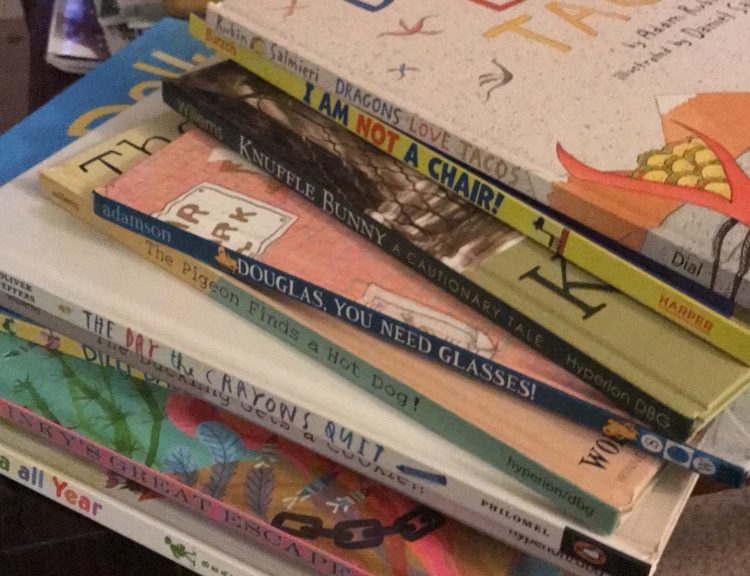
What We Teach Our Child to Say as They Struggle in Their Learning
When I was tutoring a student in reading over the summer, they had a question for me after one of the sessions. “What should my daughter say when someone points out that she’s not at the same reading level as them?” Since she was home because schools were closed, she didn’t have to endure any ridiculing. However, now that some friends are coming together again, she is hearing it again. Many students having a speech impediment or reading at a lower grade level will encounter other children noticing and asking questions about their disability. Some may even word it in a cruel way, but first arm your child with the right thoughts and the correct phrases to use to practice being positive.
Hearing Unkindness
As I hear this, it instantaneously reminds me why I love to teach reading strategies to elementary school children. I recall my own situation as a youngster with a lower grade level in reading. Because I had severe allergies during the fall and spring months, I missed several days of school and important reading lessons. By the time I was in fourth grade, those lost days were apparent. I had to go to the reading room with some of my classmates to practice and learn reading strategies that I missed. In the 70’s, the class would read from the text taking turns. I usually spent my time counting the paragraphs and the classmates to determine when I was going to read and look it over before doing it aloud. Instead of listening to the information others were reading, I was horrified of sounding slow and hearing the giggles with remarks. The worst was going to lunch and hearing some students comment on my reading ability.
Offering the Answer
Just as I hear the question from the mom, my mature self steps in and becomes so excited that I can help someone that is dealing with the same problems I had as a child. We all want to stop the harassing immediately with a forceful attack to give the sting right back. However, it is more important to understand why these comments are being slung and point our response towards that with kindness rather than anger. Most children point out another’s disabilities in order to show off. Since they may feel inadequate in another area of school work, they use what they know to stand out. We all want to be well liked, so we try to put others down in order to raise our own spirits. If parents can see this first, coming up with responses will be easy. Because no one is trying to hurt our feelings, we need to align our statement with the most loving manner.
Reading Struggle is Real
When you’re an elementary student struggling with reading, it is hard to hide it from others. There’s popcorn read aloud and teachers selecting students to practice group reading. I remember that freezing feeling when it was my turn to read. Since I was so nervous, it made my reading even worse. At the 4th grade, I recall wishing I had more self confidence and a way to let others know that their harsh words were hurtful. More importantly, I wanted to know what to say to make the remarks stop but keep my friends.
Understanding is Key
Most people aren’t aware that their remarks are hurtful because they are just trying to pump themselves up. By arming our children with loving statements or positive mantras, you will be helping out your baby and teaching them something vital for their future. As people grow older, they experience pain in their bodies or may have experienced a sad moment in their life. These can also be the reasoning behind unkind words. Basically, we forget to think. When you educate your child on why something is happening, it usually takes the sting and bite out of the pain. When we realize that others feeling low esteem say things to put another down, these remarks are understood and can fall off easier. We accept that we are all trying our best in the world and learn to be better individuals.
Positive Statements Go a Long Way
Once we educate our children on why people say unkind words, now we can arm them with kind statements. Because we want to practice our positive mindset, we can state the following:
Q- “You don’t know that word?”
A-“I didn’t know that word, but now I do. Thank you.”
Q-“Why do you speak like that? I can’t hear when you talk that way, what did you say?”
A-“I’m sorry you can’t understand; I can speak slower. I’m working hard every day on my speech.

Choose Kindness
Just like Zarathustra stated, “Good thoughts, good words, good deeds.” This is why this works. When we respond with kindness, it reminds others to do so as well. Once we see that we are all trying to learn, we can react in an approving manner. By saying “Thank you”, we can think of it as saying thanks to the universe for helping. It also creates a calm space with gratitude.
If we have a speech disability, we can offer forgiveness for slowing them down, however after we explain ourselves it offers them a reason. It also states how proud we are of our accomplishment so far. What a great way to remind others that we need to show kindness no matter what is happening. Others are struggling just like us. By responding with kindness, we can change someone’s feelings to positive along with the world.